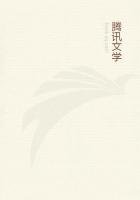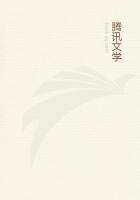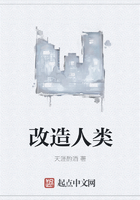So he went on wooing, happy in the thought that at last he had found a mistress who could see no difference in the age of her lovers. Her own age had no time-measure. For years past, incited by John La Farge, Adams had devoted his summer schooling to the study of her glass at Chartres and elsewhere, and if the automobile had one vitesse more useful than another, it was that of a century a minute; that of passing from one century to another without break. The centuries dropped like autumn leaves in one's road, and one was not fined for running over them too fast. When the thirteenth lost breath, the fourteenth caught on, and the sixteenth ran close ahead. The hunt for the Virgin's glass opened rich preserves.
Especially the sixteenth century ran riot in sensuous worship. Then the ocean of religion, which had flooded France, broke into Shelley's light dissolved in star-showers thrown, which had left every remote village strewn with fragments that flashed like jewels, and were tossed into hidden clefts of peace and forgetfulness. One dared not pass a parish church in Champagne or Touraine without stopping to look for its window of fragments, where one's glass discovered the Christ-child in his manger, nursed by the head of a fragmentary donkey, with a Cupid playing into its long ears from the balustrade of a Venetian palace, guarded by a legless Flemish leibwache, standing on his head with a broken halbert; all invoked in prayer by remnants of the donors and their children that might have been drawn by Fouquet or Pinturicchio, in colors as fresh and living as the day they were burned in, and with feeling that still consoled the faithful for the paradise they had paid for and lost. France abounds in sixteenth-century glass.
Paris alone contains acres of it, and the neighborhood within fifty miles contains scores of churches where the student may still imagine himself three hundred years old, kneeling before the Virgin's window in the silent solitude of an empty faith, crying his culp, beating his breast, confessing his historical sins, weighed down by the rubbish of sixty-six years' education, and still desperately hoping to understand.
He understood a little, though not much. The sixteenth century had a value of its own, as though the ONE had become several, and Unity had counted more than Three, though the Multiple still showed modest numbers. The glass had gone back to the Roman Empire and forward to the American continent; it betrayed sympathy with Montaigne and Shakespeare; but the Virgin was still supreme. At Beauvais in the Church of St. Stephen was a superb tree of Jesse, famous as the work of Engrand le Prince, about 1570 or 1580, in whose branches, among the fourteen ancestors of the Virgin, three-fourths bore features of the Kings of France, among them Francis I and Henry II, who were hardly more edifying than Kings of Israel, and at least unusual as sources of divine purity. Compared with the still more famous Tree of Jesse at Chartres, dating from 1150 or thereabouts, must one declare that Engrand le Prince proved progress? and in what direction? Complexity, Multiplicity, even a step towards Anarchy, it might suggest, but what step towards perfection?
One late afternoon, at midsummer, the Virgin's pilgrim was wandering through the streets of Troyes in close and intimate conversation with Thibaut of Champagne and his highly intelligent seneschal, the Sieur de Joinville, when he noticed one or two men looking at a bit of paper stuck in a window.
Approaching, he read that M. de Plehve had been assassinated at St. Petersburg.
The mad mixture of Russia and the Crusades, of the Hippodrome and the Renaissance, drove him for refuge into the fascinating Church of St. Pantaleon near by. Martyrs, murderers, Cæ;sars, saints and assassins -- half in glass and half in telegram; chaos of time, place, morals, forces and motive -- gave him vertigo. Had one sat all one's life on the steps of Ara C渓i for this? Was assassination forever to be the last word of Progress? No one in the street had shown a sign of protest; he himself felt none; the charming Church with its delightful windows, in its exquisite absence of other tourists, took a keener expression of celestial peace than could have been given it by any contrast short of explosive murder; the conservative Christian anarchist had come to his own, but which was he -- the murderer or the murdered ?
The Virgin herself never looked so winning -- so One -- as in this scandalous failure of her Grace. To what purpose had she existed, if, after nineteen hundred years, the world was bloodier than when she was born? The stupendous failure of Christianity tortured history. The effort for Unity could not be a partial success; even alternating Unity resolved itself into meaningless motion at last. To the tired student, the idea that he must give it up seemed sheer senility. As long as he could whisper, he would go on as he had begun, bluntly refusing to meet his creator with the admission that the creation had taught him nothing except that the square of the hypothenuse of a right-angled ******** might for convenience be taken as equal to something else. Every man with self-respect enough to become effective, if only as a machine, has had to account to himself for himself somehow, and to invent a formula of his own for his universe, if the standard formulas failed.
There, whether finished or not, education stopped. The formula, once made, could be but verified.
The effort must begin at once, for time pressed. The old formulas had failed, and a new one had to be made, but, after all, the object was not extravagant or eccentric. One sought no absolute truth. One sought only a spool on which to wind the thread of history without breaking it. Among indefinite possible orbits, one sought the orbit which would best satisfy the observed movement of the runaway star Groombridge, 1838, commonly called Henry Adams. As term of a nineteenth-century education, one sought a common factor for certain definite historical fractions. Any schoolboy could work out the problem if he were given the right to state it in his own terms.
Therefore, when the fogs and frosts stopped his slaughter of the centuries, and shut him up again in his garret, he sat down as though he were again a boy at school to shape after his own needs the values of a Dynamic Theory of History.

